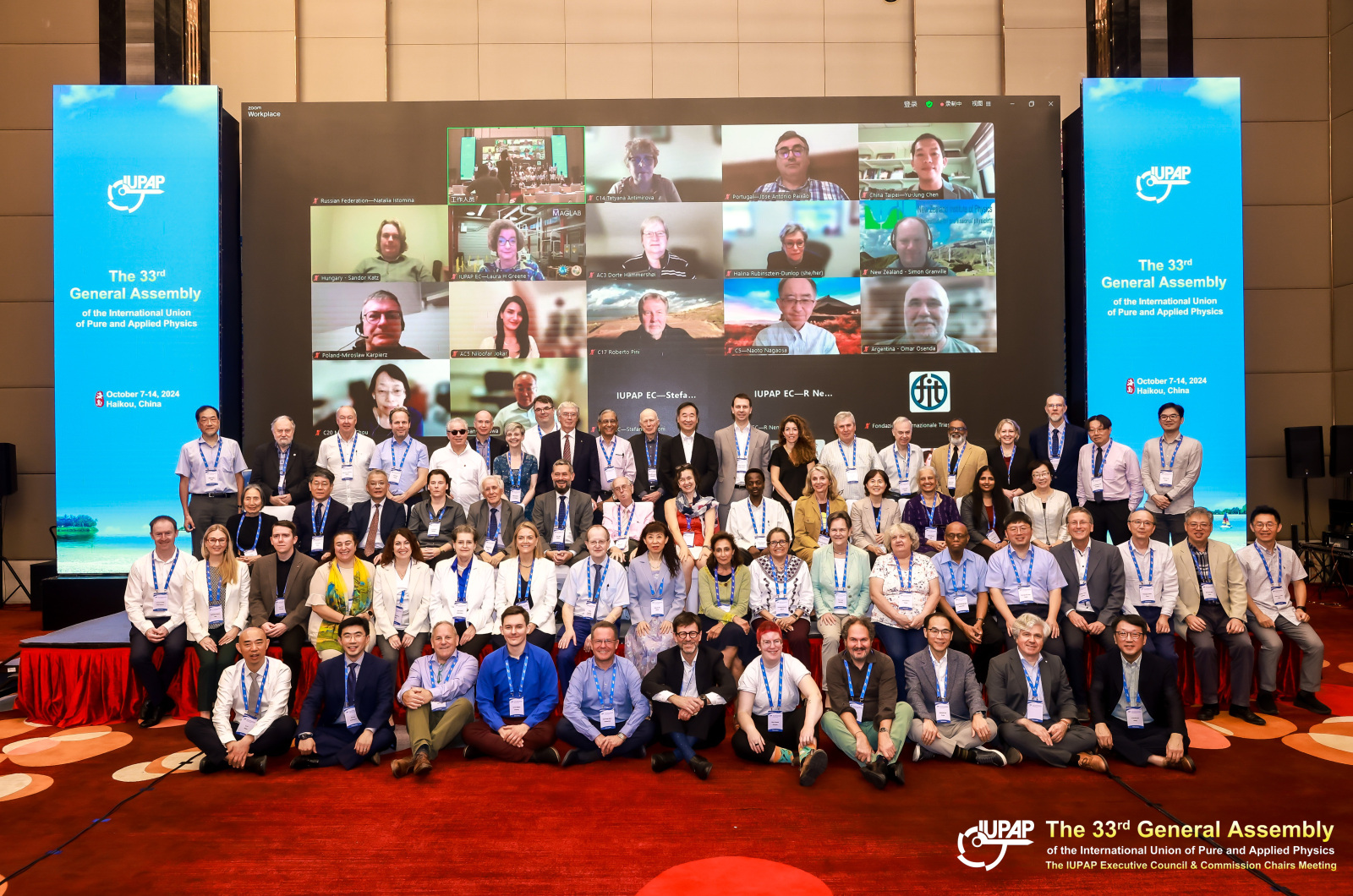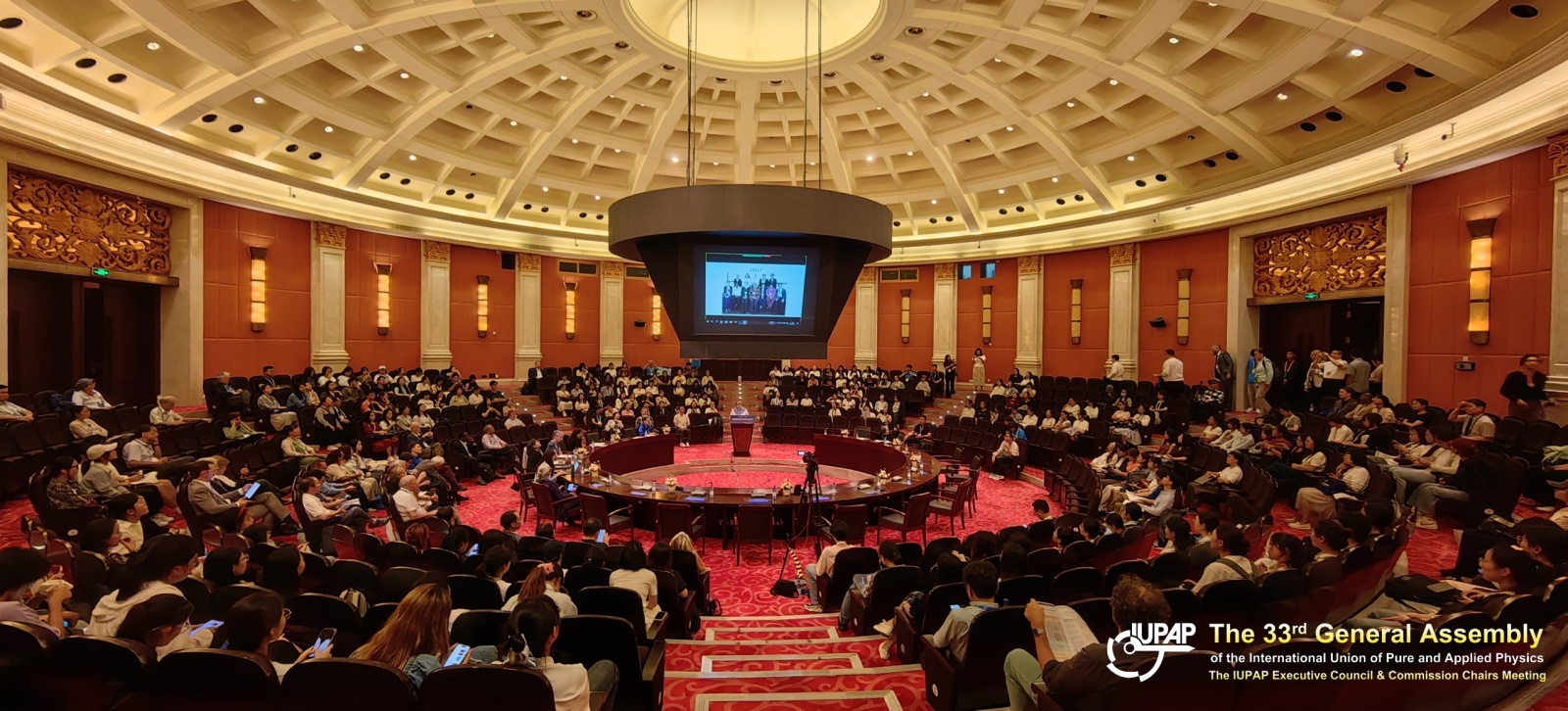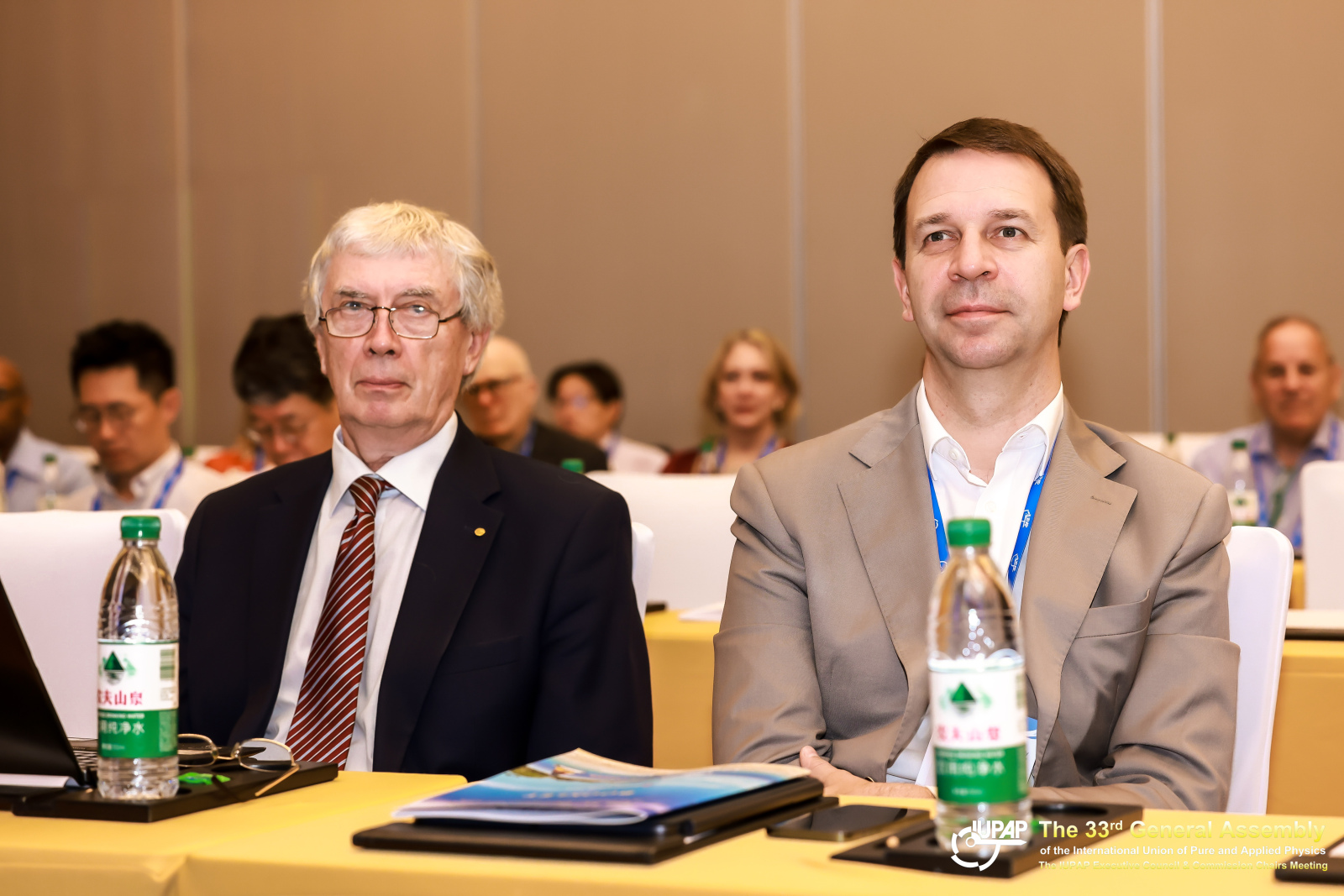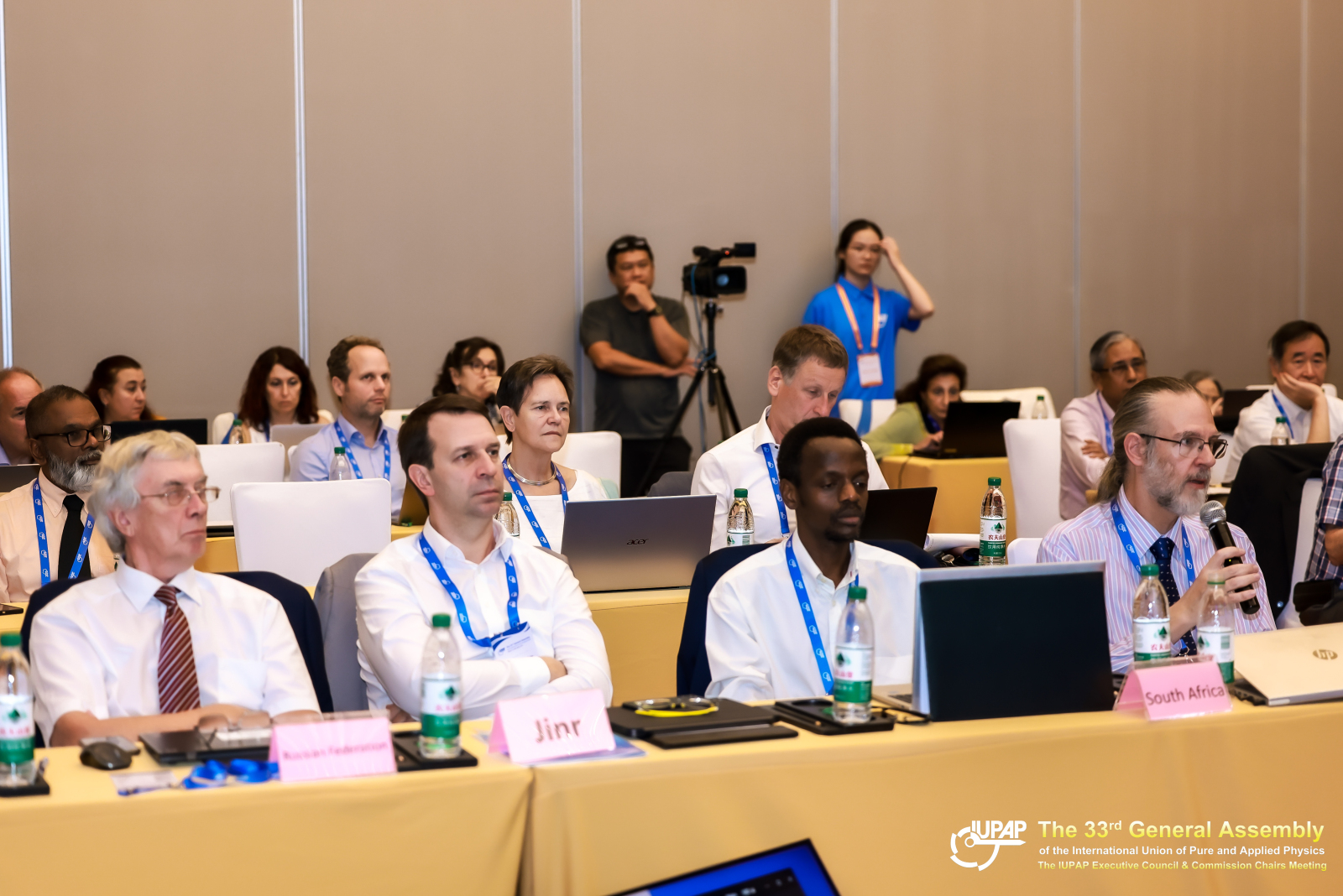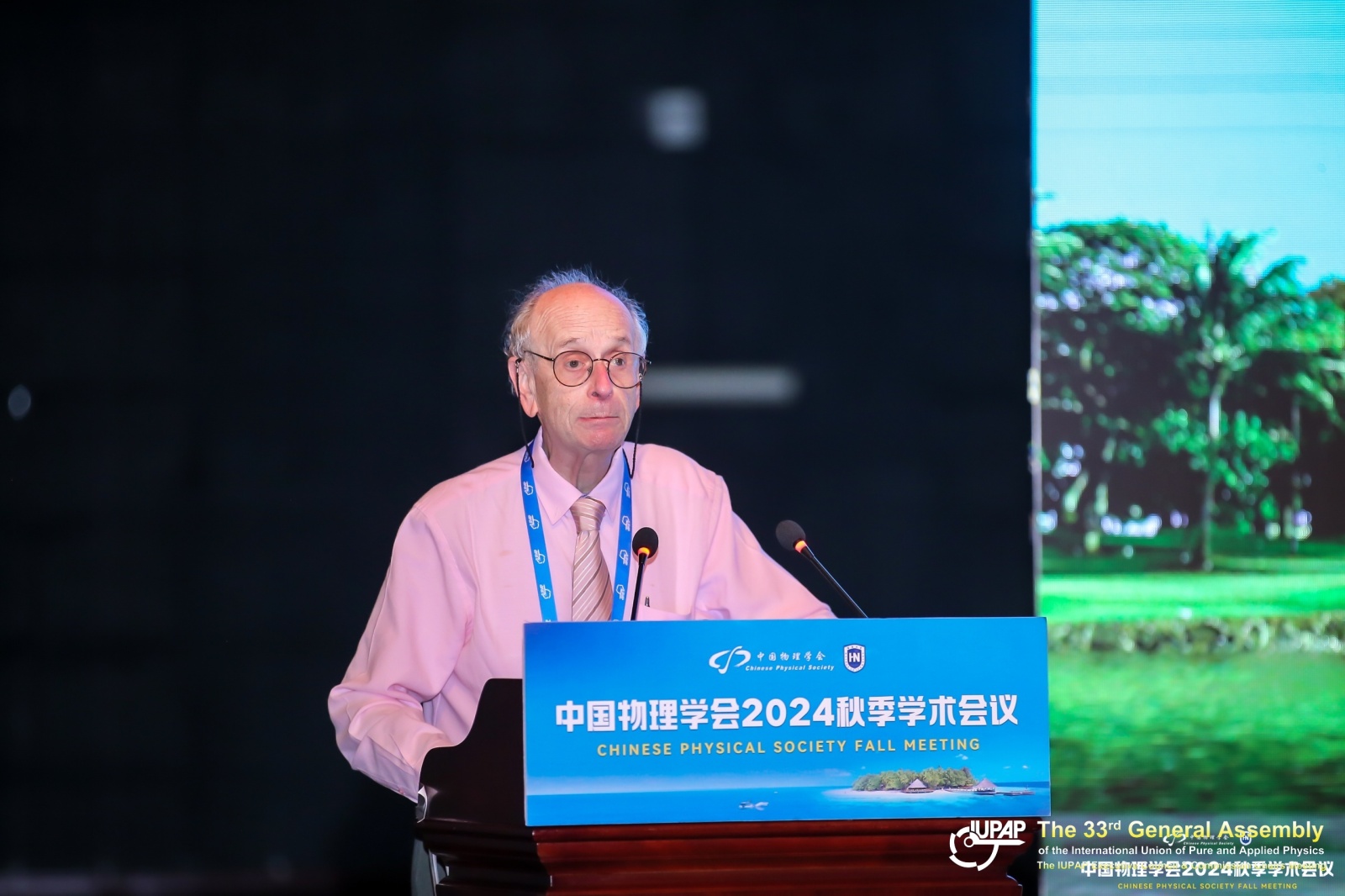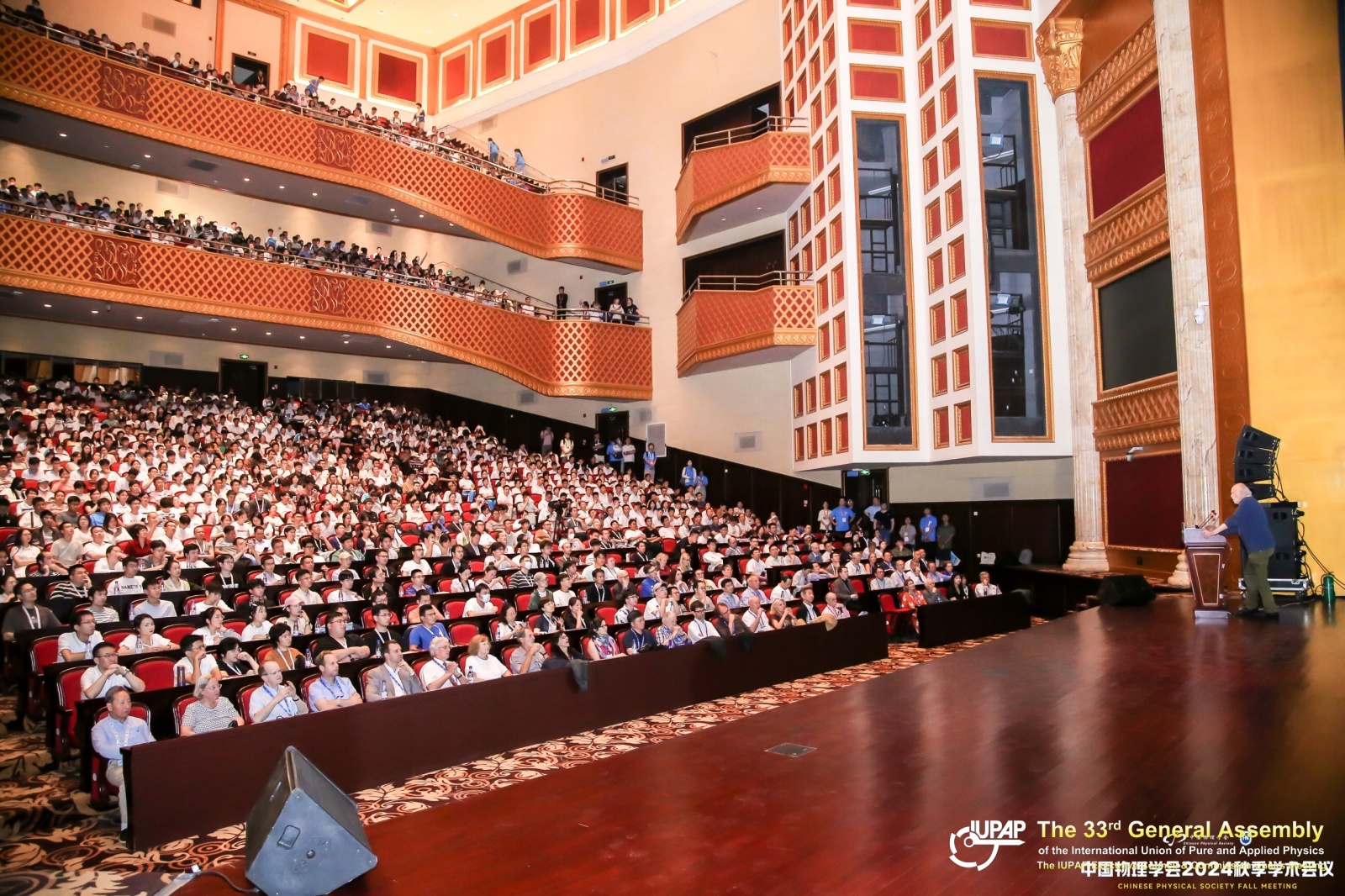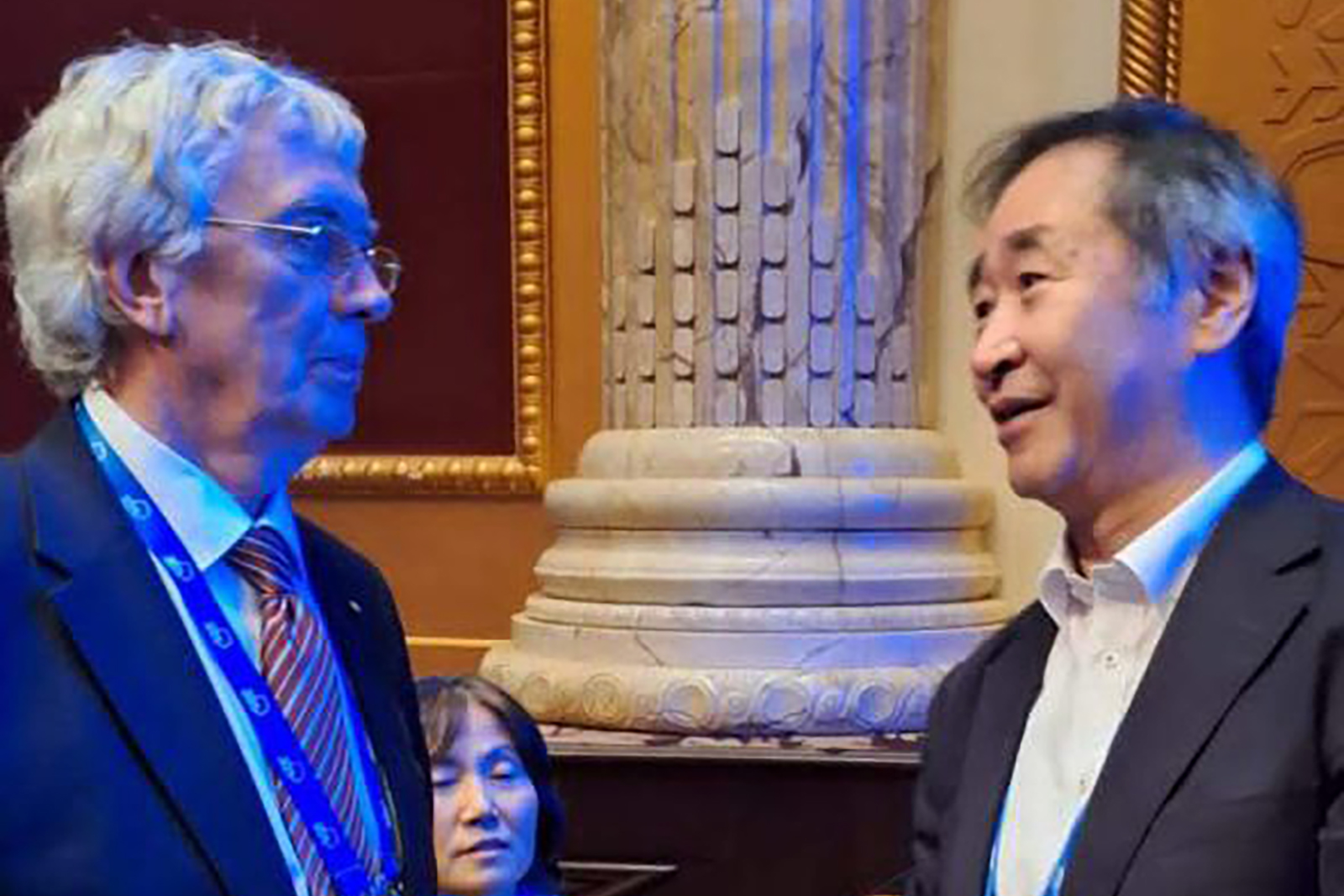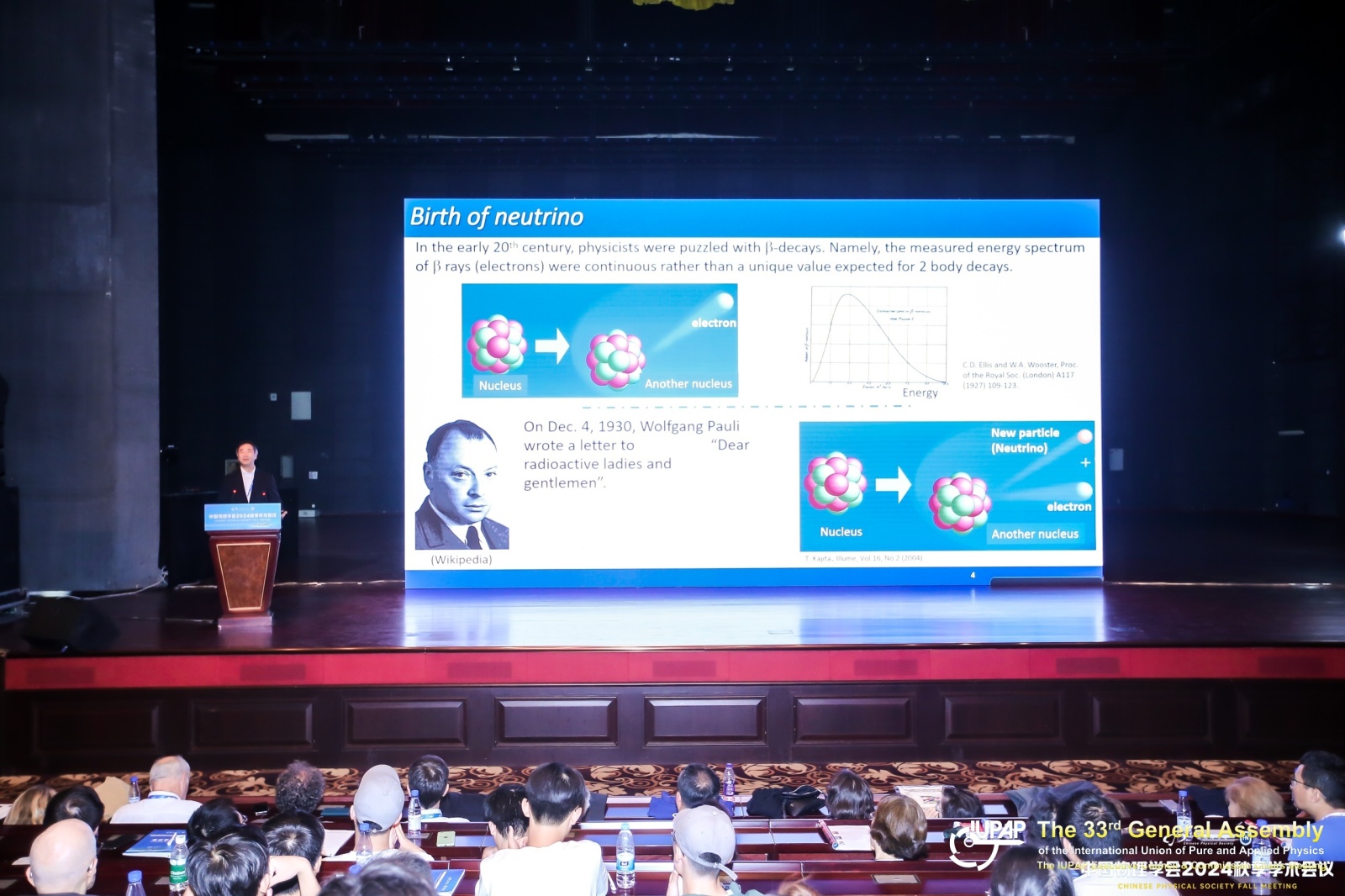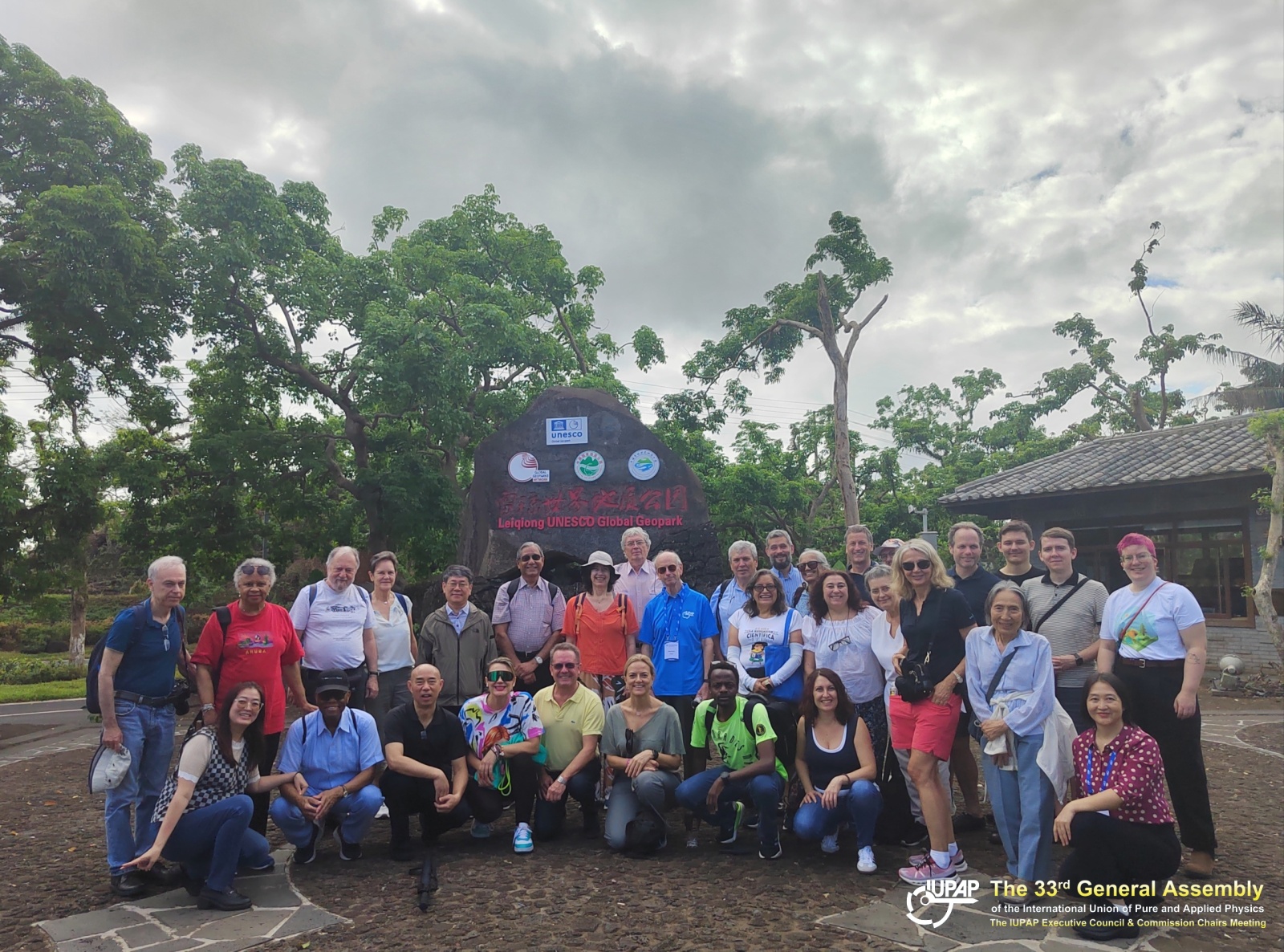JINR at 33rd IUPAP General Assembly
News, 25 October 2024
At the 33rd General Assembly of the International Union of Pure and Applied Physics (IUPAP), held on 10–14 October in Haikou on Hainan Island (China), Special Representative of the JINR Director for Cooperation with International and Russian Scientific Organizations Boris Sharkov was re-elected for a second term as an Officer serving as a Treasurer. Three JINR candidates were appointed members of the IUPAP commissions.
The event takes place every three years to re-elect the members. The delegation of the Joint Institute, consisting of JINR Director, Academician Grigory Trubnikov, and Academician Boris Sharkov, took part in meetings of the General Assembly and held several discussions with leaders of major scientific organizations, in particular, regarding joint participation in international research projects.
JINR, as an international intergovernmental organization, acts as an Independent Corporate Associate Member of the IUPAP, on a level with CERN. “Our representation and active participation in the IUPAP ensures the international public importance of the Joint Institute, its recognition, and openness in the international scientific community,” Boris Sharkov noted. He explained that the JINR representatives taking part in the IUPAP General Assembly was very important for JINR’s representation in the world’s physics community. Alongside such global events, there is a good opportunity to establish and maintain a network of personal working contacts with the chairs of 20 IUPAP specialised commissions in various fields of physics, prominent world-recognised scientists, heads of large scientific centres.
In particular, Grigory Trubnikov held talks with members of the CERN Council to discuss JINR’s further participation in CERN projects. “JINR is highly welcomed by the community as a channel for preserving and involving Russian scientists from the Academy of Sciences, specialised institutes, universities, and scientists from Belarus in large scale experiments at CERN,” Boris Sharkov said. In addition, meetings took place with the heads of major global and national infrastructure projects and outstanding scientists, including Nobel laureates in physics Barry Barish (gravitational waves), Takaaki Kajita (neutrino oscillations), and Samuel Ting (discovery of the J/ψ meson).
Boris Sharkov emphasised that it is of great importance for the IUPAP that JINR supports the Member States and Associate Members of the Joint Institute, such as South Africa, Uzbekistan, Vietnam, and others, through involving their scientists in promising international projects and promoting their national projects in the global physics community. “In this sense, JINR functioning as a leader and organizer for all our Member States is very noble and practically efficient,” he noted.
Three years ago, Boris Sharkov was invited by the IUPAP President Michel Spiro to become a member of the Executive Council and was elected to this position. At the 33rd General Assembly, Academician Sharkov was re-elected for a second term as an Officer serving as a Treasurer, and three JINR candidates were elected to participate in the IUPAP. VBLHEP Chief Researcher Richard Lednický will represent the Institute in the Commission on Particle Physics. “It was highlighted that JINR is an international organization, and it will be represented by a Czech citizen,” Boris Sharkov commented on this appointment. A senior researcher at the Laboratory of Nuclear Reactions Galina Knyazheva was recommended by FLNR and elected to the Commission on Nuclear Physics; LRB Director Aleksander Bugay joined the Commission on Biological Physics. “The members of the General Assembly recognised that the Joint Institute for Nuclear Research is an authoritative scientific centre that carries out its international mission effectively and professionally, and therefore its representation in the Commissions should be expanded at the next elections,” Boris Sharkov stressed.
In addition to the thematic Commissions, JINR will suggest its representatives for the future elections in the IUPAP Working Groups, in particular, to the Commission on Accelerator Science. Boris Sharkov noted that the IUPAP has Working Groups corresponding with all of the major Institute’s activities, which makes it possible for the IUPAP to provide support in holding scientific conferences and meetings, employee trips to major international conferences, and nominating scientific personnel, especially young scientists, for prizes and medals of the Union. “Our task is to be proactive, to use the full range of opportunities,” Boris Sharkov emphasised.
The General Assembly was held at the same time as the annual meeting of the Chinese Physical Society (CPS). Public lectures by three Nobel laureates, Barry Barish, Takaaki Kajita, and Samuel Ting, took place at the joint sessions of the IUPAP and the CPS.
Background information:
The IUPAP (International Union of Pure and Applied Physics) is the largest and the only global organization covering all areas of physics, organized and managed by the physics community itself. The International Union of Pure and Applied Physics was founded in 1922, and it remained active ever since. The main idea and motto of the organization is that science is outside politics. A crucial part of this prestigious organization’s work is the fair (inclusive) distribution of knowledge and goods around the world and the promotion of cooperation of international physicists. In particular, the IUPAP focuses on involving the Global South countries in international physics. Special attention is paid to attracting young researchers and women scientists from each country in natural sciences. French physicist Michel Spiro, IUPAP President for two terms (until 2024), is a member of the JINR Scientific Council.
Currently, the IUPAP includes 67 countries and territories. The IUPAP member countries’ fees are spent on promoting international conferences and the participation of women researchers and early career scientists in conferences, scientific exchange, and internships. At the same time, financial restrictions are placed on supporting conferences with high organizational fees, which scientists from developing countries cannot afford.
The IUPAP strongly rejects political interference in science and discrimination of researchers on national or state grounds. In 2022, the IUPAP offered scientists from Russia and Belarus neutral affiliation to participate in conferences. In many institutes of the Russian Academy of Sciences, young researchers used this opportunity.
